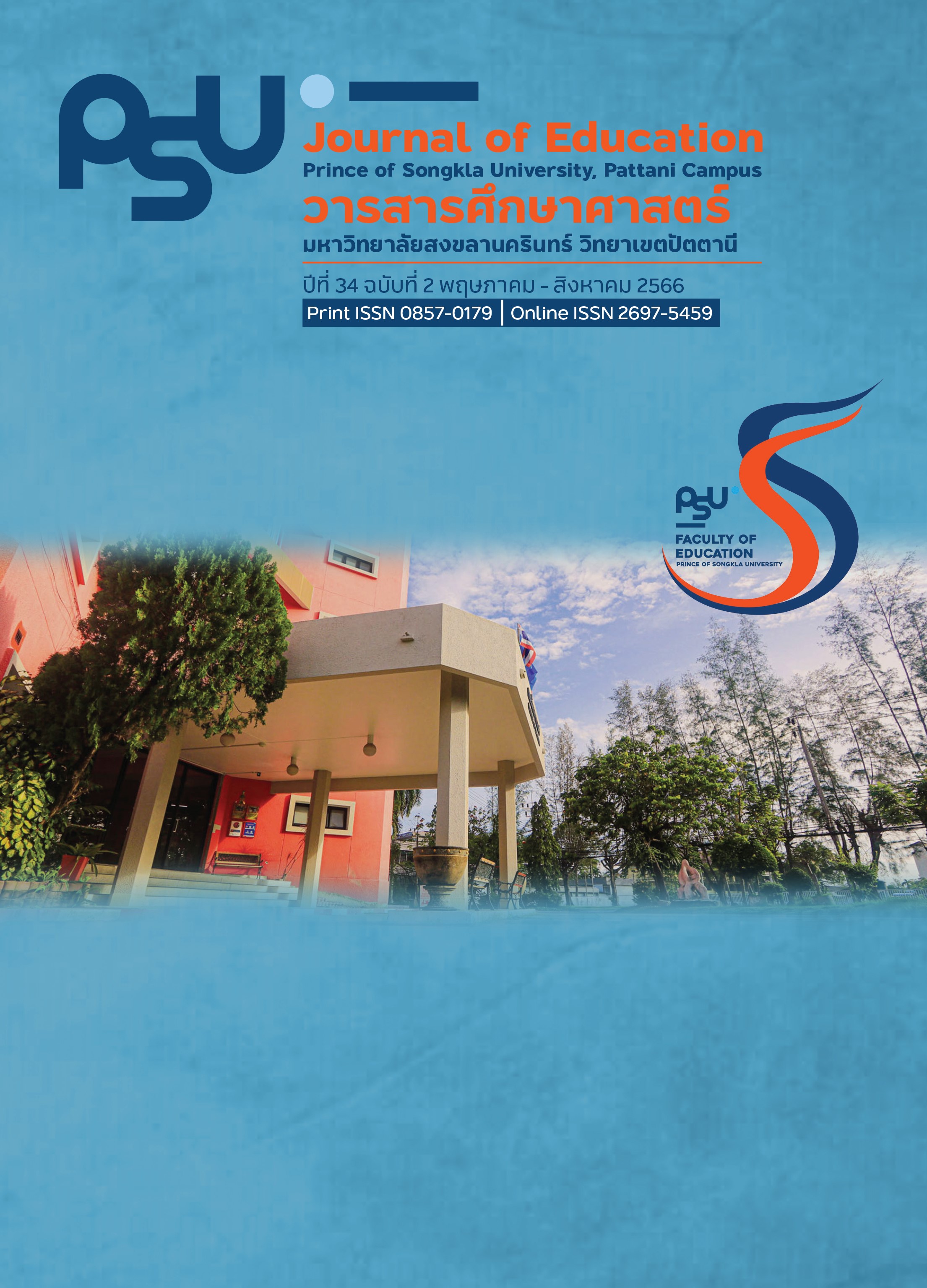Factors Affecting Mathematics Achievement for Grade 9 Students: Mediation Analysis
Main Article Content
Abstract
The objectives of this research were 1) Study the factors affecting Mathematics Achievement. 2) Study the relationship of factors affecting Mathematics Achievement and 3) Study the influence on Mathematics Achievement. The samples consisted of 420 students using Multistage Random Sampling. The instruments consisted of 1) Self Efficacy test 2) Teaching Behaviors questionnaire 3) Attitude Towards Learning test 4) Motivation to Learn test and 5) Mathematics Achievement Test by using Structural Equation Model.
The results of the research were as follows: 1) Overall, the factor level in motivation to learn teaching behaviors self efficacy and attitude towards learning was at a high level, with an
mean at 3.70, 3.63, 3.42 and 3.28 respectively. 2) Self efficacy and mathematics achievement has
the highest correlation coefficient at 0.776. motivation to learn and mathematics achievement
has the lowest correlation coefficient at 0.381. and 3) Research hypothesis model of Factors Affecting
Mathematics Achievement. Is consistent with the empirical data. Which was χ2 = 0.49, df = 1, P-value = 0.486, RMSEA = 0.000, GFI = 1.00, AGFI = 0.99, SRMR = 0.004 and χ2/df = 0.49. Self efficacy teaching behaviors attitude towards learning and motivation to learn can jointly explain the variance Mathematics Achievement percentage 66. Attitude Towards Learning be partial mediation of self efficacy and teaching behaviors. While, motivation to learn no mediation of self efficacy and teaching behaviors.
Article Details

This work is licensed under a Creative Commons Attribution-NonCommercial 4.0 International License.
References
Darachai, W. (2011). Factors related to the self-efficacy of students in grades 2-3. [Unpublished master's thesis]. Srinakharinwirot University. [in Thai]
Hogg, Michael A. (1998). Social Psychology: Structure and Function of attitudes. United Kingdom: Mathematical Composition Setters Ltd.
Jaiwongya, R. (2013). A Study of Student Attitudes towards Course 301 Statistical pri nciples. [Research grants]. Maejo University. [in Thai]
Malpass, J. R., O'Nell, H. F., & Hocevar, D. (1999). Self-Regulation, goal orientation, Self-efficacy, worry, and high-stakes math achievement for mathematically gifted Highschool students. Roeper Review. http://www.cdnet3.car.chula.ac.th/hwweda/detail.nsp
Permpitak, S., et al. (2009). Achievement motivation in a class of first year students 1. Faculty of Accounting Bangkok University. Bangkok University. [in Thai]
Pongmalee, C. (2007). Study the relationship between the behavior of the teachers with the ability of critical thinking of students in grade 6 under the O ffice of Nakhon Ratchasima Educational Zone 6. [Unpublished master's thesis]. Srinakharinwirot University. [in Thai]
Srichaiwan, P. (2011). The Motivation for the performance of sub-district administrative organization personnel in the area Si Somdet District Roi Et Province. [Unpublished master's thesis]. Chaiyaphum Rajabhat University. [in Thai]
Techasiriyuenyong, P. (2009). The study of academic achievement of secondary school students 4 has been investigated by teaching math game for a reason. [Unpublished master's thesis]. Srinakharinwirot University. [in Thai]
Thanyarattanasrisakul, M. (2009). Analysis of Factors Affecting Learning Achievement in Mathematics of Grade 6 Students Rajaburana School Nakhon Pathom Province. Thai interdisciplinary research journal, 10(2), 24-28. [in Thai]


